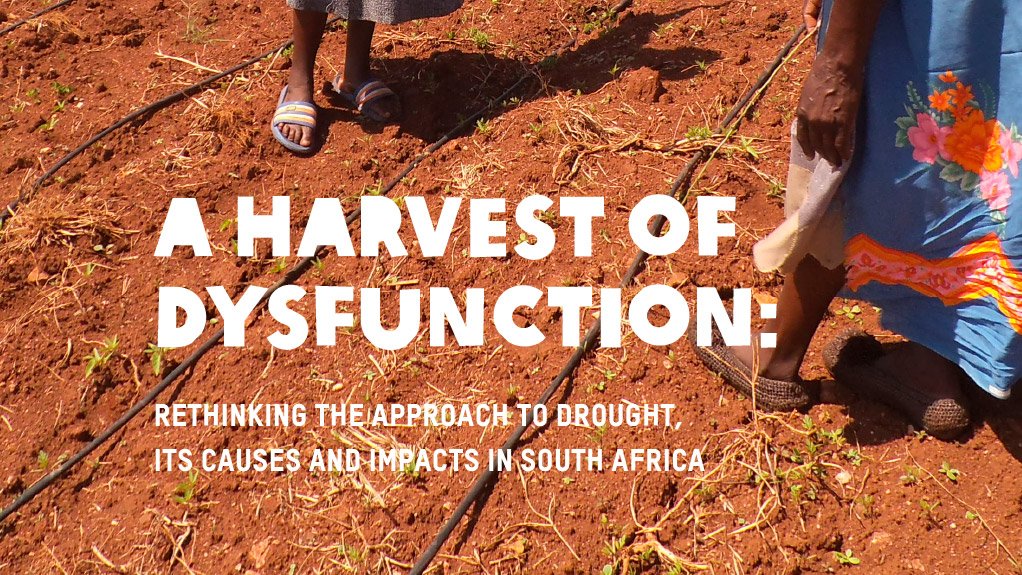- A Harvest of Dysfunction: Rethinking the approach to drought, its causes and impacts in South Africa21.94 MB
The Drought that hit South Africa has created a national disaster that places severe burdens on low-income rural and urban households who are reliant on buying, rather than growing their food, while losing opportunities to secure income through employment and farming, a report released today by Oxfam South Africa found.
Along with the reduction and reallocation of water resources, farming in South Africa needs to balance water use and its conservation, the efficient production of food and of white maize in particular, and ensuring the availability of sufficient, nutritious, affordable food.
South Africa has been experiencing its most severe drought in over 35 years. More than half of the population have experienced water shortages or supply interruptions, while rising food prices and income insecurity are making hunger a daily reality for a growing number of families.
This report argues that the devastation caused by the current drought is not simply a consequence of poor rainfall and the strongest El Niño on record; it is a harvest of dysfunction, arising from South Africa’s failure to address structural vulnerabilities.
It is crucial that lessons from this drought are learnt – both to develop more effective responses to the immediate crisis, and to put the country on a more equitable and sustainable path.
Food-price escalations – resulting from an unregulated market and compounded by drought-induced supply constraints – are having a devastating impact on vulnerable people.
Women are particularly affected; they are compelled to work ever harder to provide their families with the food and water they need to live healthy, productive and dignified lives. The country’s food staple, white maize, is at the mercy of speculative and financial dynamics that extend beyond South Africa, placing the entire region’s food security at constant risk.
We believe as OxfamSA that references by government officials and politicians to drought as a ‘God-given’ event – and their palpable relief that rain has now fallen in parts of the country – create the illusion that South Africa has survived the crisis and can put the problems of drought behind it. This denies the reality of severe drought as a slow-onset disaster that systematically strips away layers of resilience, resulting in poverty, insecurity and hunger for growing numbers of people.
The drought has exposed critical fault lines in South Africa – including the inequalities in income and access to land and water which exacerbate the drought’s impact. These weaknesses require urgent attention if the current and future combinations of recurrent droughts, stronger El Niño effects and rising temperatures as a result of climate change are to be managed sustainably.
Yet to date, the government’s responses to the drought have been slow, sporadic and badly targeted. Despite the range and extent of impacts across society, it has not declared a national emergency.
It is also our view as Oxfam SA that by defining the drought in the narrowest terms – i.e. as a single event caused by low rainfall – the government response is limited, overlooks those people and groups who most need support, and misses a crucial opportunity to address the structural problems that the drought has laid bare. As the effects of climate change continue to unfold, it is an opportunity that South Africa and the wider region can’t afford to miss.
While equitable redistribution of water for multiple purposes is a social and political imperative, overall national consumption of water must be reduced in the face of climate change and demographic pressures. The drought also makes clear the need to rethink key agrarian issues – and to balance water use and its conservation with efficient food production, and ensuring the availability of sufficient, nutritious, affordable food. These are policy challenges in ‘normal’ times. As recurrent drought becomes ‘the new normal’, these challenges will escalate if they are not effectively confronted now.
Report by Oxfam
EMAIL THIS ARTICLE SAVE THIS ARTICLE ARTICLE ENQUIRY
To subscribe email subscriptions@creamermedia.co.za or click here
To advertise email advertising@creamermedia.co.za or click here











